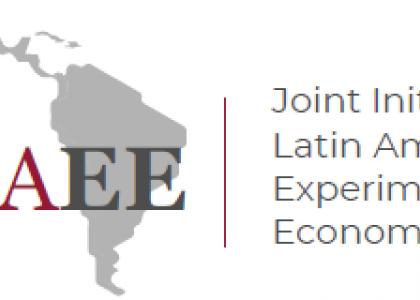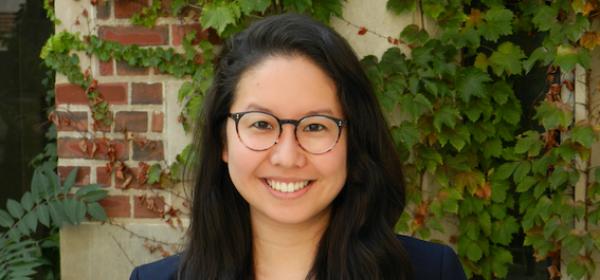While many ordinary events are cancelled due to COVID-19, one regular summer occurrence continues:
Three faculty members join the QED for Fall 2020.
We are profiling their backgrounds and research programs online.
Karen Ye comes to Kingston from Chicago via a postdoctoral position in Argentina.
Karen Ye is a behavioral and experimental economist with an interest in education. Her research combines economic theory with psychology, sociology, and other disciplines. She tests these economic theories using experiments in the field.
Working in partnership with schools and private companies, governments and other organizations, she studies how social networks, emotions, and beliefs influence the way people make decisions.
Learning Economics and the Economics of Learning in Chicago
Ye developed her main research interest early in her academic career. As an undergraduate student of Economics at the University of Chicago – where she later earned her Master’s and PhD – she was a research assistant for a number of professors.
One of them, John List, was investigating ways to help children in Chicago elementary and high schools to perform better on standardized tests. One experiment tested loss aversion theory, and found that children were motivated more by the loss of a $20 bill they were given (and would have to return if they didn’t improve their score) than by the promise of the same $20 after they improved. Working on this and other projects sparked Ye’s interest in running her own education field experiments.
In her dissertation research, Ye looked into what drives teenagers’ decision-making about higher education. Do they learn from their peers’ choices about the value of those choices (e.g., going to school)? Do they choose a school because their friends are going there? Or do they go to school to be like everybody else? Perhaps unsurprisingly, Ye found that the third option – social conformity, which is very important to teens – has the biggest influence. But there was one unexpected result.
"I found that while teenagers want to do what everyone else does in terms of schooling, they underestimate the educational investments that everyone else is making. They really don’t think that everybody else is going to educational programs. They don’t think everybody else wants to go to college, when in fact I find that they do. This actually suggests that if you want to make sure that teenagers put more effort in their school and make more educational investments, you want to correct their beliefs about what everybody else is doing."
Latin American Partnership
In 2018, a former colleague approached Ye and List, her PhD supervisor, with an intriguing proposition: he wanted to establish a partnership between the University of Chicago and Universidad del CEMA in Argentina, in order to use field experiments to study education and other topics in Latin America.
Eventually – after much discussion, and a whirlwind trip by Ye and a couple of others to Buenos Aires for discussions with prospective research partners – the Joint Initiative for Latin American Experimental Economics (JILAEE) was born.
The following year Ye was hired as a postdoc at JILAEE and charged with getting the research centre off the ground. Today, she is its Assistant Director, and will continue to hold the position after she starts work at Queen’s Economics this fall.
Untapped Potential
Latin America is a bit of an untapped market in terms of field experiments with research partners,
so we’re trying to bridge this gap.
The questions the centre is exploring are ones some observers might not normally associate with economics. For instance, Ye and her co-authors are trying to shed light on how parents form beliefs about childrearing in rural towns and villages.
“Some parents may think that vaccination is good, some parents might think vaccination is bad. Some parents might, think that they should hit their children, some parents might think that they shouldn’t,” says Ye. “There’s a lot of heterogeneity in how much parents invest in their children’s education, and one possible reason can be differences in their beliefs about best practices. We’re basically looking at how parents formed those beliefs.”
Before they venture forth to conduct in-person interviews and experiments with parents and community members from these rural towns, they dispatch a team of Argentinian research assistants – typically BA and Master’s students – who know the language and the local culture to gather demographic information about the areas under study. The big-picture background reports the assistants produce help the researchers zero in on and frame the questions they want to pursue.
“One thing I’ve learned is that when you go into a new context, you have to really immerse yourself,” says Ye. “You have to learn about the rural towns, about their cultures, about the situation, the setting. That’s always really important when we’re doing this work.”
Rural Parenting
In particular, Ye is investigating through the centre how community wisdom affects the way rural parents raise and relate to their children, and how this in turn affects the children’s education. “All over Latin America, a lot of children aren’t able to go to school or [because of Covid-19] haven’t been able to go to school for a few months. It’s really important to make sure these children don’t fall behind. So what parents are doing in their homes to invest in their children’s education is also going to be very important.”
First, Ye and the centre’s researchers will look into how parents educate their children. If they find that certain passed-on parenting wisdom is at odds with new evidence-based knowledge, the next step will be to find ways to persuade parents to adopt new beliefs incorporating this knowledge. Of course, the challenge at this step will be to see if not only individual parents, but entire communities, will be open to advice from outsiders, especially scientific experts.
Ye is hopeful that contributors from Queen’s will help fulfil the centre’s Latin American mandate. “If any faculty want to collaborate with us on some projects, or if students want to get some research experience and go down to Buenos Aires for a couple months, we would love for them to get involved.”

